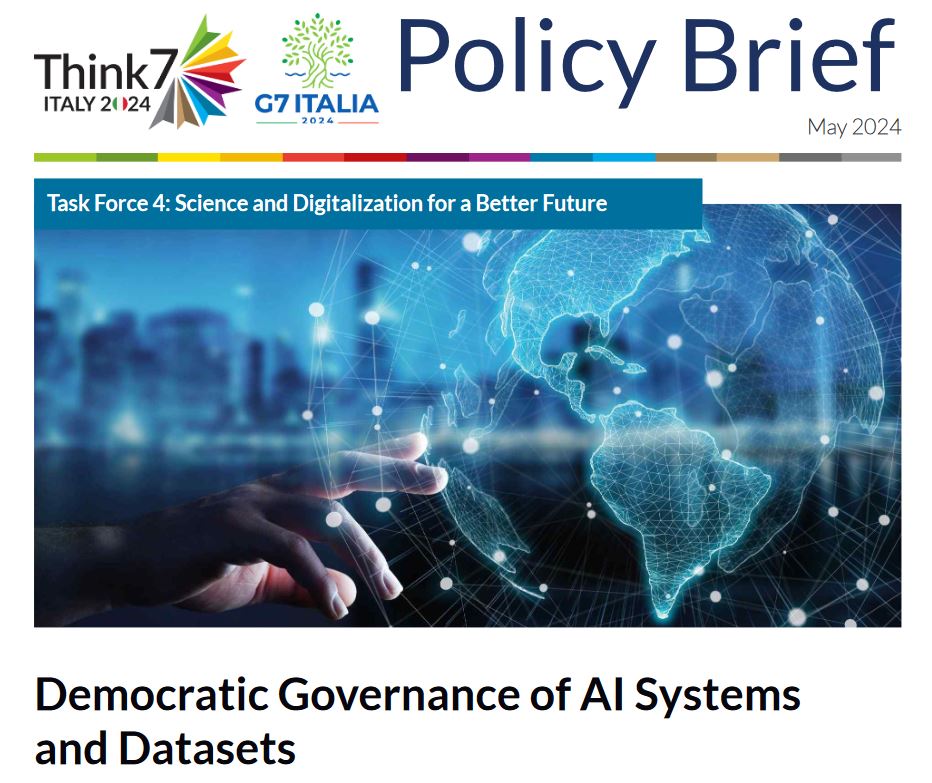T7 Policy Brief, co-authored by the DPGA Secretariat, gives recommendations on the democratic governance of AI systems and datasets

In the ever-evolving landscape of artificial intelligence (AI), the uneven distribution of AI’s benefits across societies and economies cannot be ignored. This issue not only exacerbates domestic and global inequalities but also poses significant challenges to the democratic governance of technology and future innovation capacity. Recognizing this, the Digital Public Goods Alliance Secretariat co-authored with representatives from Open Future, the Open Knowledge Foundation, Eleuther AI, the Center for European Policy, and MicroSave Consulting, a T7 policy brief urging the G7 to take steps towards democratizing AI systems and dataset governance.
Democratizing AI begins with acknowledging the stark disparities in its current distribution of resources, power, and usage. In December 2023, the G7 Hiroshima AI Process underscored a shared commitment to maximising AI’s benefits for the common good worldwide. However, achieving this goal necessitates concrete policy interventions geared towards democratizing AI technologies and a concerted effort to bridge the digital divide beyond just the G7 countries alone.
The policy interventions outlined in the brief emphasise the role of digital public goods and public options to facilitate access to resources essential to democratizing AI development and use. These include computing power, training datasets, and open-source AI models. Investing in these resources allows a broader spectrum of stakeholders to participate in, and benefit from, AI advancements, create AI systems that reflect cultural, linguistic, and social diversity, and develop AI tools that meet people’s own challenges and aspirations, no matter where they are in the world.
Furthermore, the brief advocates for proactive measures to manage AI-induced labour market changes and calls for the establishment of frameworks for international and multilateral cooperation. Collaboration across borders with democratic governance at its core is critical to ensuring that the benefits of AI are shared equitably and can lead to greater control and oversight for AI systems and their responsible, human-rights-based deployment.
In conclusion, democratizing AI is not just an ideal; it’s imperative for fostering inclusive progress globally. By embracing democratic governance principles, implementing targeted policy interventions, and supporting the creation of AI DPGs, we can steer AI toward serving the collective good and pave the way for a more equitable and prosperous future for all.